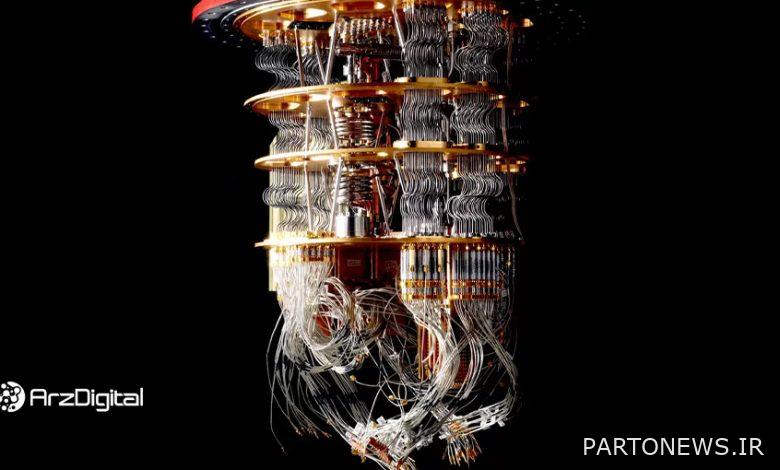Do Quantum Computers Destroy Bitcoin?

The power of the Bitcoin network is enormous because of its sophisticated cryptographic system; But what if in the not-too-distant future, computers make significant progress that current cryptographic standards are no longer strong enough?
To Report Decrypt, quantum processing is both good news and dangerous in nature; Because this technology allows computers to use the laws of quantum physics to speed up the computation and processing of vast amounts of information that modern systems are not easily able to do and reach this speed.
Quantum computers are currently in the early stages of development and are not widely available on the market; But the beginning of the era of using these systems is probably closer to what many people imagine.
Is it possible to break the private bitcoin key?
Needless to say, this has never happened before, but one of the options available to get the private key of a Bitcoin wallet is the “Brute Force” on the private key itself.
This type of attack involves a comprehensive, automated computer search of possible combinations to guess a private key, thus allowing one person to access another person’s assets.
However, the problem for today’s hackers is that each private key is one of 2 to the power of 256 states that they have to guess. To understand the magnitude of this number, it must be said that the total number of atoms in the universe is probably less than that. Today’s computers are also unable to guess this number; Unless they are constantly being processed for several hundred years.
How far are we from learning quantum computers?
At present, quantum computing technology is advancing well. In February 2021, Microsoft announced the launch of a service called Azure Quantum, which was designed to bring quantum technology to the company’s computers.
In China, computer component maker SpinQ is working on a quantum system that wants to market it as a public product if possible for as little as $ 5,000. In March 2022, the NATO Cyber Security Center announced that it had successfully completed a test of a communications security scheme called the “post-quantum world.”
Is Bitcoin really at risk?
In the post-quantum world, bitcoin is somehow at risk; Because the transactions of this digital currency are always waiting in line for processing; However, the processing time is not very long.
New blocks of the Bitcoin network are extracted on average every 10 minutes, and as you probably know, not all eligible transactions are included in the first available block, and some are queued. Once a transaction is taken out of the queue and registered in one of the network blocks, it can no longer be manipulated. However, before the transaction is verified, it is “theoretically” possible to simulate the private key of an address, allowing the hacker to steal funds from the user’s wallet before verifying the new block on the network.
Also Read: Quantum Computers and Digital Currencies; Everything you need to know
“In an interview with Decrypt, Andersen Cheng, CEO of Post-Quantum, a company active in quantum processing and network security, said:
When a public key is exposed, a quantum computer can find its private key almost instantly, in minutes, or hours at most.
However, Cheng believes that this threat is not only related to the issue of transaction authentication, but also affects the trust of users.
Quantum Post CEO says:
The main threat is not the leaking of private keys, but rather the argument that quantum computers can emulate the victim’s private key without the victim realizing it, undermining investor confidence in the signature function.
However, we have not yet reached such a stage. According to Mark Webber of the University of Sussex in the UK, breaking such a level of cryptography would require a quantum computer with 1.9 billion qubits of processing power. This is a very high figure; Especially when you consider that IBM’s best quantum computers currently have only 127 qbps of processing power.

Cheng had previously said in an interview with Decriptum that quantum computing is not something that will enter our world any time soon. However, it cannot be said that quantum computing and the risks that this technology may pose will not affect the digital currency industry.
Cheng said:
People who say we don’t need to worry about quantum computers because we are 10, 20, or 30 years away from them are often talking about commercial quantum computers. In the world of cybersecurity, however, the threat is closer to us than you might think.
In fact, by some estimates, it may be only five years before we reach a quantum computer that can crack the code of an encrypted system. Of course, this does not mean that quantum computers will be able to bypass the Bitcoin cryptography system in the next 5 years.
Referring to the inevitability of this issue, Cheng added:
We [اکنون] We are concerned about the prototype of a low-quality quantum computer built in a basement (referring to the University of Maryland project). This computer can break the current cryptographic models and, as I explained earlier, also involve digital currencies in the dangers of this technology. In general, digital currency ecosystems need to be protected against quantum computers.
Atrium co-founder Vitalik Butrin said in 2019 about quantum computers:
To summarize the recent advances in quantum computing technology, I would say that their relationship to real quantum computing is something like the relationship between hydrogen bombs and nuclear fusion. It is possible to prove whether this phenomenon exists and its energy utilization; But we are still far from reaching the stage of real use of it.
Also read: The future of bitcoin; 12 scenarios from replacement with gold to destruction
What can be done to deal with the dangers of quantum computers?
Many are finding ways to avoid this potential problem that will not only affect bitcoins and digital currencies, but also other cryptographic systems, such as banks.
Researchers at Imperial College University have proposed a soft fork for blockchain bitcoin that could lead to “secure transfer of assets between wallets resistant to quantum technology.” Others have suggested increasing the size of bitcoin keys.
However, CoinShares, a digital asset management company, wrote on its website that it would be irrational to use quantum computing to break the cryptographic structure of Bitcoin, even if it was not in vain.
Kevin Shears said:
We believe that by summarizing the development costs and technical capabilities of quantum computers, we can conclude that competing with ASIC miners is technically and economically impractical now and perhaps forever.
Despite these statements, Kevin Shears experts have suggested that in order to avoid potential threats, it is better to “change the current cryptographic infrastructure” in the next decade.

